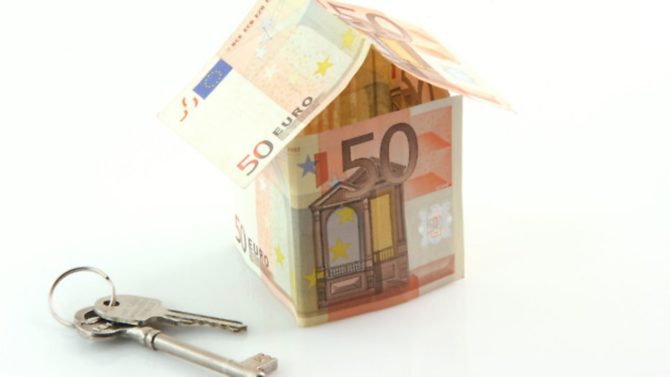Tax regimes when working in France

Debbie Bradbury explains the different structures and tax regimes available to you should you be planning to start and run a business in France
If you are thinking of starting a business in France, you need to know the main business structures and tax regimes available, as well as some of the obligations related to these structures or business regimes.
Sole trader
If you want to work independently and be in full control of your business, the individual enterprise allows you the flexibility of making all your own decisions, taking money from the business when you want and paying income tax on your earnings.
In France we distinguish two main tax regimes – the ‘réel’ (profit and loss) and the ‘micro’ (simplified regime). The simplified regime exists for people who do not have a high level of expenditure and who are perhaps not the best at keeping paperwork in order!
There are no profit and loss accounts to prepare and you are simply required to declare your turnover, on which the French tax authorities apply a fixed allowance for expenditure before calculating your income tax liability and social charges.
1 Micro regime
There are conditions to the micro regime, which are as follows:
Maximum turnover threshold:€32,900 for services / labour €82,200 for sales (or combined turnover of both)
Tax-free allowances:
34% for pure service providers50% for commercial or artisanal services 71% for sales
No VAT as the VAT thresholds are the same as above
Social charges are based on the ‘net’ profit after the relevant allowance has been applied but are generally payable quarterly, in the first year on an estimated figure and then on the true results from two years previously, with the disadvantage of not really knowing the level of charges each year.
However, a start-up scheme known as auto-entrepreneur was put in place in 2009, and this scheme offers the same tax regime but with a ‘pay as you go’ system for social charges, where you only pay charges on what you have earned. The difference is that these charges are calculated on fixed rates based on your turnover, and the above allowances are only applied for income tax calculations, not social charges.
The French are in the process of merging the micro and auto-entrepreneur regimes into one single micro tax regime, and it is understood that the ‘pay as you go’ system should remain.
2 Réel regime (profit and loss) This regime has no turnover thresholds, no fixed allowances for expenditure and no ‘pay as you go’ system. It takes into account your gross turnover, deducting all true costs and ending up with a true profit.
Social charges are then calculated on the true profit and a proportion of these are then deducted to find the definitive net profit (or deficit), which is then declared on your personal income tax return.
You can either choose to be VAT-registered (whatever your level of turnover – particularly if you pay VAT on your purchases) or, if you exceed the above thresholds, you are obliged to register for VAT.
A full set of accounts has to be submitted to the tax authorities once a year, and a personal income tax declaration submitted related to the individual’s profit or loss (along with the rest of the household worldly income!).
Although working as a sole trader, if you are married or have entered into a PACS, your spouse can work as part of the business as long as they contribute into the self-employed pension scheme (although this is not compatible with the auto-entrepreneur regime because of the fixed rates of social charges).
Limited company
The other main business structure is the limited company – this can either be as a sole shareholder or with a number of shareholders. Here the company profits are subject to corporation tax, and any remuneration you take individually is then taxed under the income tax regime.
However, you will either need to take a salary and/or dividends, and dividends can only be taken at the end of the company’s financial year. Each director remunerated by the company must contribute into the French welfare system and also into the company.
Registration formalities for a limited company are more complex and costly compared to a sole trader activity, and the Memorandum of Articles needs to be prepared by an accountant or notaire before registration can take place.
Accountancy fees for profit and loss accounts will be higher for a limited company due to additional declarations, AGM minutes, corporation tax etc, but will vary from business to business according to turnover, activity, whether you have staff and whether you are registered for VAT.
In any type of professional activity, a professional bank account is required (with the exception of the auto-entrepreneur where you can use a personal account as you simply make a declaration of your turnover).
Social charges
As indicated above, social charges are generally calculated using the results of the business from two years previously once the definitive results have been declared. The level of social charges varies according to the professional activity undertaken and the type of business structure.
Generally these range between 40-45% of your profit if you are on the micro or réel regime, and the following fixed rates for the auto-entrepreneur (pay as you go) scheme:
Pure sales activities: 14.1% of turnover
Commercial or artisanal (trade)
services (labour):
24.6% of turnover
Pure service providers: 23.3% of turnover
There are other business structures and some specific to particular professional activities, however the above outlines the main options for individuals or small companies.
Debbie Bradbury is the co-ordinator of English-speaking clients at SAREG chartered accountants, and can provide information on becoming tax resident in France, or a tax simulation
Tel: 0033 (0)4 50 25 23 97
www.sareg.com
Share to: Facebook Twitter LinkedIn Email


